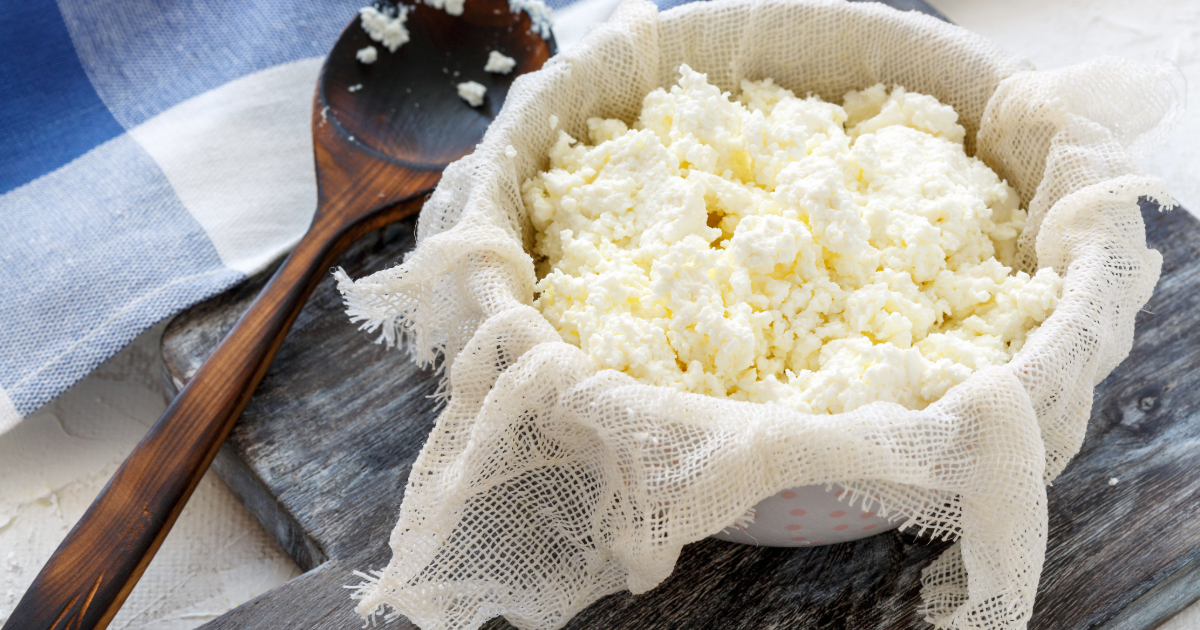Cheese is one of the most popular and commonly consumed foods around the world. From mozzarella and cheddar to brie and parmesan, cheese comes in endless delicious varieties. With the rising popularity of home cooking and DIY food projects, many people are now wondering if it's worthwhile to make their own homemade cheeses.

So what are the main differences between homemade and store bought cheese? And ultimately, which makes for the better option?
Ingredients and Additives
One of the biggest appeals of homemade cheese is knowing exactly what's going into your food. When you make cheese yourself, you control every ingredient and avoid any unwanted additives.
Store bought cheeses often contain preservatives, stabilizers, colorings, and other artificial ingredients to extend shelf life and improve texture and appearance. While these additives are considered safe for consumption, some people prefer to avoid them.
Common additives found in store bought cheese include:
- Sodium citrate - Used as an emulsifying salt to create smooth texture and keep oils distributed evenly. Also allows cheeses to melt without separating.
- Natamycin - An antifungal agent applied to the cheese rind to inhibit mold growth and prevent spoilage. Often used for soft cheeses with edible rinds.
- Annatto - A natural food coloring derived from annatto seeds and added for an appealing yellow-orange color.
- Cellulose - An additive made from plant fibers and used as an anti-caking agent to prevent shredded cheese from clumping.
When you make cheese at home, you get to dictate every ingredient to your personal preferences. You can use pure, high quality ingredients and avoid any additives you want to steer clear of.
Making your own cheese allows you to keep ingredients completely natural, organic, non-GMO, lactose-free, etc based on your needs. It also avoids concerns over hormones or antibiotics entering dairy products.
Key Takeaway: Homemade cheese allows full control over ingredients and avoids preservatives found in many store bought cheeses.
Health and Nutrition
Generally speaking, homemade cheeses are healthier than store bought options since you control what goes into them. But does homemade cheese actually offer increased nutritional value?
Research shows that in some cases, yes - homemade cheese can pack more nutrition than commercial products.
According to a study published in the Journal of Food Science and Technology, homemade cheeses had higher levels of:
- Protein
- Calcium
- Phosphorus
- Essential amino acids
- Healthy fatty acids
This is likely because homemade cheeses are produced from fresher milk before nutrients degrade. The process also avoids overheating milk proteins which can reduce nutritional content.
So by making your own cheeses at home, you can maximize nutritional value and health benefits. You get all the tasty goodness of cheese without compromising quality.
Cost Savings
Another motivation behind home cheesemaking is saving money. After all, specialty artisan cheeses can get quite expensive at upscale grocery stores.
To estimate potential savings, let's break down the basic costs behind homemade mozzarella as an example:
Homemade mozzarella
- 1 gallon whole milk = $3 to $4
- Citric acid = approx $0.05 per batch
- Rennet = approx $0.10 per batch
- Total = $3 to $5 for 1-2 pounds of fresh mozzarella
Store bought mozzarella
- Basket of fresh mozzarella balls = $7 to $12 per pound
As you can see, homemade mozzarella costs just $3 to $5 total for roughly 2 pounds of cheese. Compare that to $14 to $24 if purchasing the same amount pre-made at the store.
Over time, opting to make your own can add up to major savings - especially if cheese is a regular part of your diet.
Savings ultimately depend on the type of cheese and ingredients needed. But when comparing gourmet varieties like aged cheddar, parmesan, or soft ripened cheeses, savings are even more pronounced since specialty store bought versions command higher prices.
Key Takeaway: Homemade cheeses can cost significantly less per pound compared to gourmet store bought options.
Flavor and Texture
A common belief around homemade goods is that they simply taste better. So how does that notion hold up when applied to cheese?
Well, there's certainly an argument that the flavor and texture of homemade cheeses are superior since they are made from fresh ingredients and avoid effects of mass production.
The key advantage around flavor stems from using high-quality dairy as the base. Store bought cheeses often rely on cheap commodity milk pooled from many farms. Homemade cheeses start with the best milk you select - from local farmers, specialty producers, even your own animals if you keep dairy goats or cows.
Texture also benefits from the TLC provided during home production. With complete control over ingredients, cultures, timing, temperature, and handling, you can achieve your ideal desired consistency perfected to your personal preferences.
However, there are still many delicious and artisanal cheeses produced commercially that are hard to top in terms of flavor and texture. So store bought cheese certainly gives homemade a run for its money in this category.
Convenience and Consistency
Here’s where the scales start tipping back in favor of store bought cheese - when it comes to convenience and consistency.
Running out to the grocery store whenever you need cheese is undoubtedly easier than preparing batches from scratch in your kitchen. You skip straight to the enjoyment without any hands-on effort.
Store bought cheese also has an advantage around consistent results. Major cheese companies invest heavily in research, quality control procedures, and precision equipment to churn out cheeses with reliable flavors, textures, and shelf lives. So you know exactly what you’re getting every time.
Whereas when making cheese at home, outcomes can vary more batch to batch based on factors like ingredients, cultures, equipment, environment, and technique. There’s a learning curve involved to achieve mastery and reliable recipes.
So if you value convenience and predictability above all else, store bought cheese still maintains the upper hand here. But for many homesteaders and DIYers, the extra effort of homemade is well worth it.
Safety and Regulations
On a serious note, food safety is another area where store bought cheese has an advantage given the extensive safety protocols followed by commercial producers.
Cheesemaking involves growing cultures and controlling pathogens that can cause illness if mishandled - namely salmonella, listeria, pathogenic E. coli, and staph.
Reputable cheese companies employ various controls including:
- Carefully sourced milk
- Testing for contaminants
- Pasteurization and purging steps
- Sanitary equipment and facilities
- Environmental pathogen controls
- Employee safety training
- Rigorous inspection, sampling, and lab testing
Whereas in a home kitchen, you become fully responsible for managing these risks end-to-end. Safety ultimately comes down to understanding proper process controls, sanitation practices, risk factors, and signs of spoilage or contamination.
For beginners especially, there’s a steeper learning curve involved with cheesemaking food safety compared to grabbing pre-made products off grocery store shelves. But with adequate education and care, homemade cheeses can meet comparable safety standards.
Which Cheese is Ultimately Better?
So when all factors are weighed up, what’s the final verdict - does homemade or store bought cheese claim victory?
As with most food decisions, there's no definitive right or wrong answer here. The "best" option comes down to your personal priorities and preferences.
For optimal freshness, ingredient control, nutrition, and cost savings - homemade cheese prevails. But for maximum convenience and food safety assurance - store bought still maintains advantages.
Here’s a cheat sheet to help decide which suits your needs:
Homemade Cheese Pros
- Full ingredient & additive control
- Avoids preservatives
- Maximizes nutrition
- Promotes small scale sustainable agriculture
- Saves money long-term
- Allows creativity & customization
- Delivers satisfaction of self-sufficiency
Store Bought Cheese Pros
- Easy convenience
- Consistent results
- No equipment or skills required
- Meets commercial food safety oversight
- Caters to personal preferences & dietary needs
- Access to artisan & imported varieties
Ultimately, seeing homemade cheese as “better or worse” sets up a false dilemma. In reality, both homemade and store bought cheeses have their merits - it just depends what you prioritize. Many cheese enthusiasts happily consume both for different needs.
FAQs
What are the main advantages of homemade cheese?
The advantages of homemade cheese include full control over quality ingredients, avoidance of additives/preservatives, nutrition maximization, and significant long-term cost savings. Homemade cheese also provides satisfaction through self-sufficiency.
Is homemade cheese safe?
Yes, homemade cheese is safe if following proper sanitation, starter culture handling, fermentation control, and storage guidelines. Controlling factors like acidity and salt adequately prevents pathogen risks. However, there is less oversight than commercial production.
Does homemade cheese taste better?
Subjectively, homemade cheese CAN taste better since recipes can be tailored to individual taste preferences. However, expertise plays a role. Store bought artisan cheeses are still tough competition for amateur cheesemakers!
Is it easy to make cheese at home?
Basic cheeses are not overly difficult with some guidance. But to master the science and artistry behind cheesemaking requires extensive education and practice. Making quality homemade cheeses involves far more precision and care than most people anticipate!
Conclusion
Cheese stands as one of life's simple indulgent pleasures for good reason. Whether appreciating the complex nutty sweetness of an aged gouda or savoring the rich decadence of a baked mozzarella caprese - there's a cheese out there to suit every palate.
And when it comes to choosing between homemade and store bought options, a rare opportunity exists to literally have your cheese and eat it too!

